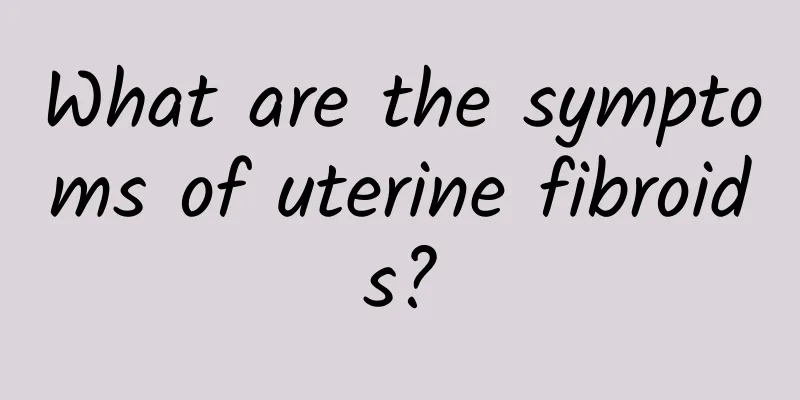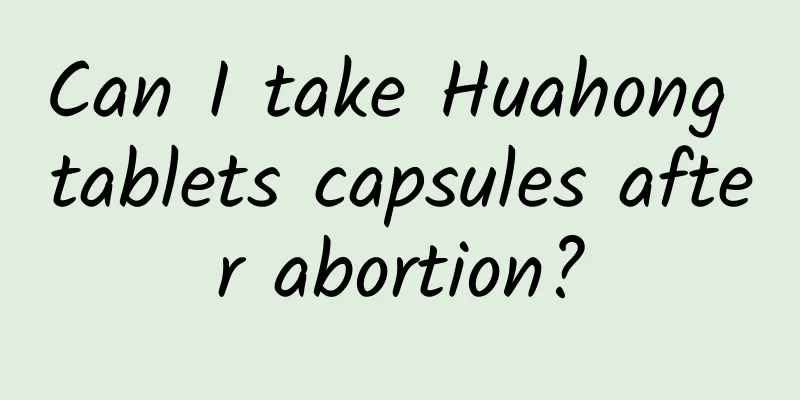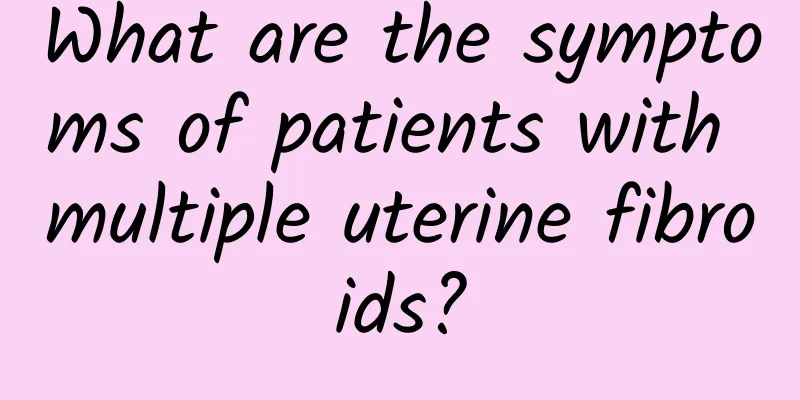What are the symptoms of uterine fibroids?

|
Uterine fibroids have a common symptom of abdominal pain. As the incidence of uterine fibroids is getting higher and higher, it has caused panic among many female friends. Many women worry whether they have uterine fibroids after abdominal pain. So, what are the symptoms of uterine fibroids? Since uterine fibroids mostly occur in women aged 30 to 50, female friends must be aware of the symptoms of uterine fibroids in time, which is very helpful for preventing uterine fibroids. The following are the symptoms of uterine fibroids: 1. Menstrual changes: The most common symptoms are shortened menstrual cycle, increased menstrual volume, prolonged menstruation, irregular vaginal bleeding, etc. 2. Abdominal mass: abdominal distension, swelling in the lower abdomen, accompanied by a feeling of falling. 3. Increased vaginal discharge: Increased vaginal discharge, sometimes with a large amount of purulent and bloody discharge and necrotic tissue discharge with a foul odor. 4. Pain: Generally, patients do not have abdominal pain, but often have lower abdominal swelling, back pain, etc. When the pedicle of the subserosal fibroid is twisted, acute abdominal pain and redness of the fibroid may occur, with severe abdominal pain and fever. It can usually be relieved with Chinese medicine gypsum. 5. Compression symptoms: When the fibroid grows forward or backward, it can compress the bladder, urethra or rectum, causing frequent urination, dysuria, urinary retention or constipation. When the fibroid grows to both sides, it will form a broad ligament fibroid, compressing the ureter or hydronephrosis; if it compresses the pelvic blood vessels and lymphatic vessels, it will cause lower limb edema. 6. Infertility: Fibroids compress the fallopian tubes and cause them to twist, or deform the uterine cavity, hindering the implantation of the fertilized egg and leading to infertility. 7. Secondary anemia: If the patient has excessive menstruation for a long time, it may lead to secondary anemia, with symptoms such as general fatigue, pale complexion, shortness of breath, and palpitations. 8. Hypoglycemia: Hypoglycemia with uterine fibroids is also rare. The main symptoms are low fasting blood sugar, loss of consciousness, shock, and the symptoms completely disappear after glucose injection. After tumor resection, the symptoms of hypoglycemia completely disappear. The above is a description of the symptoms of uterine fibroids. You must have a certain understanding of the symptoms of uterine fibroids. |
>>: What are the symptoms of uterine fibroids? How to use medication for uterine fibroids
Recommend
People should know the diagnosis basis of cervical erosion
Cervical erosion is a common disease that can ser...
Treatment of functional uterine bleeding and metrorrhagia
Functional uterine bleeding is a common disease i...
Causes of abdominal pain after abortion
Many patients experience abdominal pain after abo...
How to use medicine after abortion
How to use medicine after abortion? Nowadays, abo...
Excessive nitrate in vegetables EU: Do not exceed 220mg
Is eating more vegetables really good for your he...
The causes of multiple uterine fibroids. Will multiple uterine fibroids become malignant?
Uterine fibroids are common benign tumors in the ...
What are the symptoms of uterine fibroids? Can uterine fibroids cause uterine bleeding?
We have found that in recent years, female friend...
Four early symptoms of cervical erosion
What are the early symptoms of cervical erosion? ...
Will abortion cause ovarian cysts? What are the common complications?
Can abortion cause ovarian cysts? What are the co...
Why haven't I had my period yet after 30 days of abortion?
If menstruation does not come 30 days after abort...
May you have a happy lotus year and be happy as the dates arrive! Eating right can make you slim
As the saying goes, "Lotus brings good luck ...
What are the consequences of pelvic effusion for women?
Women will face many gynecological problems in th...
How to maintain your ovaries
The number of follicles in a woman's ovaries ...
What causes cervicitis? How to effectively treat cervicitis?
The incidence of cervicitis among gynecological d...
What medicine should I take for uterine effusion?
What medicine is good for uterine effusion? Uteri...









